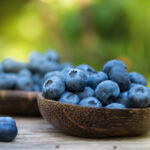U.S. could open doors to Chinese citrus

The ice continues to thaw in Sino-U.S. produce trade relations, with the Animal and Plant Health Inspection Service (APHIS) now proposing to allow imports of Chinese sweet oranges, pomelo, mandarins, satsumas and ponkan.

Photo: Choo Yut Shing, via Flickr Creative Commons
The announcement follows the re-opening of the Chinese market for California citrus this month, and follows a similar announcement in July proposing to allow imports of Chinese apples.
APHIS has pitched a systems approach involving registration, the sourcing of pest-free propagative material, inspections, fruit bagging, safeguarding, post-harvest processing and sampling, and only allowing imports of commercial consignments.
"Additionally, we would require places of production to trap for several species of Bactrocera fruit flies, and would require the fruit to be treated for those species of fruit flies," APHIS said.
While the fruit would compete directly with U.S.-grown production, APHIS expects volumes from China will be relatively small.
"The majority of China's fresh orange exports, mostly navel oranges, go mainly to Russia and to neighboring countries in Asia," APHIS said.
"China's fresh orange exports to North America, mainly to Canada, are very limited, ranging from 100 to 300 metric tons (MT) per year."
The focus is similar for easy peeler citrus varieties, however APHIS has forecast greater benefits in these crops due to rising demand and the fact the U.S. has become a net importer of mandarins and tangerines.
"Imports of fresh tangerine and mandarin varieties from China would help meet the growing demand for these citrus species, and the quantity could match the nearly 4.5 percent annual increase in imports (about 6,300 MT) that has occurred over the past 5 years.
"We expect that imports of pomelo and ponkan from China would be relatively minor, helping to serve the U.S. niche markets for these species."














































